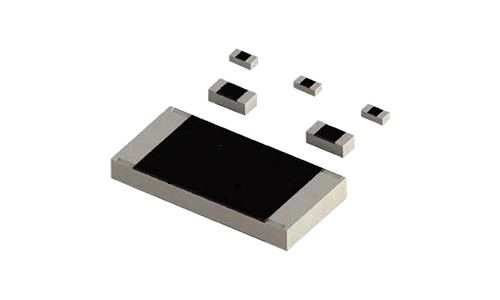How to Choose the Best Through-Hole Resistor Kit for Your Projects
When working with electronics, resistors are an essential component in every circuit. Whether you're an electronics hobbyist or a professional engineer, selecting the right resistor kit can significantly impact the quality and functionality of your designs. While surface-mount resistors are gaining popularity due to their compact size, through-hole resistors continue to be a favored choice, especially for prototyping, DIY projects, and applications that require strong physical connections. Through-hole resistor kits provide the convenience of having a wide range of resistor values available for immediate use.
In this blog post, we'll guide you through the process of selecting the best through-hole resistor kit, introduce you to leading brands like UNI-ROYAL and YAGEO, and provide information on where to purchase these kits from trusted distributors like unikeyic Electronics. Additionally, we’ll discuss some important FAQs related to through-hole resistor kits.
What Is a Through-Hole Resistor Kit?
A through-hole resistor kit typically contains a variety of resistors with different resistance values. These resistors are designed with leads that are inserted into holes drilled into a printed circuit board (PCB) and soldered in place. This method of assembly makes through-hole resistors more mechanically secure compared to surface-mount devices (SMD), making them ideal for high-reliability applications and scenarios where components may need to be manually replaced.
Through-hole resistor kits are ideal for:Prototyping and breadboardingDIY electronics projectsEducational purposes
Projects requiring a strong physical bond between the component and PCB
Key Considerations When Choosing the best through-hole resistor kit
1. Wide Range of Resistance Values
One of the main reasons to invest in a through-hole resistor kit is the flexibility it offers. The best through-hole resistor kits contain a broad range of resistor values, typically from 1 ohm to several megohms, allowing you to handle a variety of electronic applications. Whether you're designing a simple LED circuit or working on a more complex power supply, having a variety of resistor values on hand ensures that you're prepared for any requirement.A comprehensive kit should include both common E12/E24 values, as well as more precise resistances for high-accuracy designs.
2. Quality and Reliability
When choosing the best through-hole resistor kit, quality is a top priority. High-quality resistors provide accurate and stable resistance values over time, which is critical for maintaining circuit functionality and avoiding failures.Brands like UNI-ROYAL and YAGEO are well-known for their reliable through-hole resistors. These brands undergo stringent quality control and testing to ensure that their components meet industry standards. By choosing these brands, you are investing in long-term reliability for your projects.
3. Power Rating
Resistors come with different power ratings, which is the amount of power they can dissipate without overheating. The most common power ratings for through-hole resistors are 1/4 watt and 1/2 watt, but you can also find resistors with higher ratings such as 1 watt or 2 watts.For typical low-power circuits, 1/4 watt resistors are sufficient, but if your project involves higher current or voltage, opt for higher power-rated resistors. The best through-hole resistor kits should offer a range of power ratings to accommodate different circuit needs.
4. Tolerance
Tolerance refers to the precision of the resistor's value compared to its stated value. For example, a resistor with a ±5% tolerance means its actual resistance could vary by 5% from the stated value. Higher precision resistors with a tolerance of ±1% or better are used in applications requiring more accurate performance.
5. Clear Labeling and Easy Storage
A well-organized resistor kit can save you significant time and frustration during your project. The best kits come with clear labeling, usually with each resistor value organized into its own compartment or bag. This allows for easy identification and quick access during the assembly process.
6. Sourcing from Trusted Distributors
Buying from a reputable distributor ensures you are getting genuine, high-quality components. Unikeyic Electronics is a well-known distributor that offers a wide range of through-hole resistor kits from trusted brands like UNI-ROYAL and YAGEO. They provide competitive prices, especially for bulk orders, making it easier for businesses and hobbyists alike to stock up on essential components.
Unikeyic Electronics also offers excellent customer service, ensuring that you receive your orders promptly and in good condition. Their extensive catalog includes resistors and other key components, making them a one-stop shop for all your electronics needs.
Top Brands for Through-Hole Resistor Kits
1. UNI-ROYALUNI-ROYAL is known for its wide range of passive components, including resistors. Their through-hole resistors are made from high-quality materials and are available in various power ratings and resistance values. The brand is highly regarded for offering resistors with tight tolerance, ensuring greater accuracy in electronic designs.
2. YAGEOYAGEO is a global leader in the production of passive components. Their through-hole resistors are recognized for their durability and precision. YAGEO resistors are commonly used in industrial and consumer electronics due to their consistent performance and long life.
Both UNI-ROYAL and YAGEO offer through-hole resistor kits that are perfect for both hobbyists and professionals, providing a wide range of options that cater to different applications.
How to Inspect a Through-Hole Resistor Kit
To ensure that you are getting the best through-hole resistor kit, you should perform several inspections once your kit arrives.
1. Visual Inspection
Start by visually inspecting the resistors. High-quality resistors should have:Clean, unmarked surfacesNo visible signs of damage like burns, cracks, or corrosionStraight, non-oxidized leadsThe resistors should also be clearly labeled with their resistance values and color codes.
2. Measure Resistance
Even if the resistors appear visually sound, it's essential to measure their resistance using a multimeter to confirm their accuracy. Here’s how:Set the multimeter to the resistance measurement mode.Place the probes on each end of the resistor.Compare the multimeter reading to the stated resistance value. A small deviation is acceptable, depending on the tolerance of the resistor.If the actual resistance is significantly different from the stated value, you may need to contact the supplier or replace the resistor.
3. Temperature Stability
In normal operating conditions, resistors should not overheat. If you observe that a resistor becomes excessively hot during use, it could indicate a problem with the power rating or quality of the component. Always select resistors that can handle the power requirements of your circuit to avoid heat-related failures.
4. Longevity and Stability
A high-quality through-hole resistor kit should include resistors that are stable over time and in varying environmental conditions. To test longevity, monitor the resistor's performance over an extended period. If the resistance value changes significantly during usage, it may indicate poor quality or a need for a higher-rated component.
FAQs about Through-Hole Resistor Kits
Q1: What are the advantages of through-hole resistors over surface-mount resistors?Through-hole resistors offer a more robust physical connection to the PCB, making them ideal for applications where mechanical stress is a factor. They are also easier to handle and replace during prototyping, making them a popular choice for DIY electronics and educational projects.
Q2: What should I look for in a through-hole resistor kit?Look for a kit that includes a wide range of resistor values, clear labeling, and a well-organized storage system. Also, consider the power ratings and tolerance levels based on your project’s needs. Choosing a reliable brand like UNI-ROYAL or YAGEO ensures that you're getting quality components.
Q3: How do I choose the right power rating for a resistor?The power rating of a resistor should exceed the expected power dissipation in your circuit. If you're unsure, a 1/4 watt resistor is typically sufficient for most low-power applications. However, for higher current or voltage circuits, choose resistors with 1/2 watt or greater power ratings.
Q4: Can I substitute resistors from one kit for another?Yes, as long as the resistance value, tolerance, and power rating match, you can substitute resistors from different kits. Always verify the actual resistance with a multimeter if you're unsure.
Q5: Where can I buy the best through-hole resistor kits?
Unikeyic Electronics is a trusted distributor of through-hole resistor kits from brands like UNI-ROYAL and YAGEO. They offer a wide range of components at competitive prices, with the added benefit of bulk purchasing discounts.
Conclusion
Selecting the best through-hole resistor kit is critical to ensuring that your electronic projects are successful. By focusing on factors such as the range of resistance values, power ratings, tolerance, and quality, you can find a kit that meets your specific needs. Brands like UNI-ROYAL and YAGEO offer reliable resistor kits that are ideal for both hobbyists and professionals alike.
For trusted sourcing, Unikeyic Electronics is an excellent choice, providing a wide range of components from top-tier brands with competitive pricing and excellent customer service. Whether you're building prototypes or working on production designs, having the right resistors on hand will keep your projects running smoothly and reliably.
Related through-hole resistors articles recommended
Maximize Your DIY Electronics with These Best Through-Hole Resistor KitsWhere to Buy the Best Through-Hole Resistor Kits OnlineSMD Resistors vs. Through-Hole Resistors: What’s the Difference?Through Hole Resistor Packages: What You Need to Know Before BuyingPrecision and Performance: Reviewing the Best Through-Hole Resistors on the Market



















